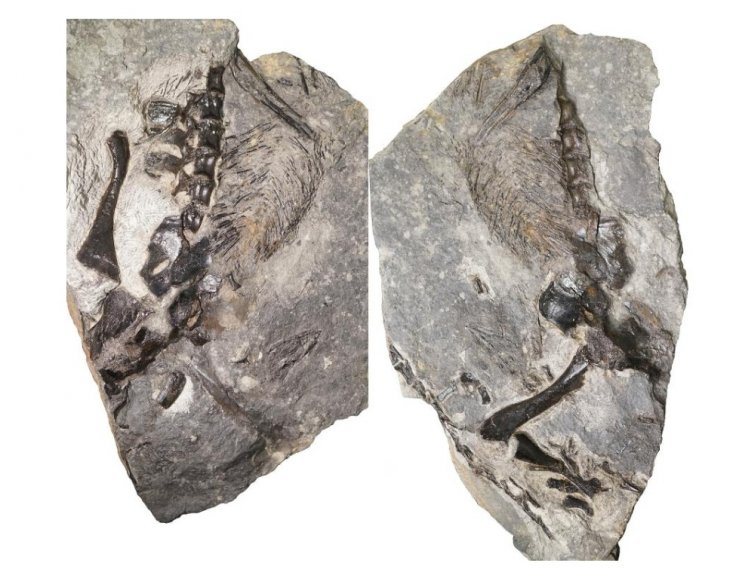
In our modern world of Internet of Things (IoT), Google is considered a mother by many computer literates, especially those who speak the south Indian language of Telugu, as they popularly and invariably refer to the search giant as 'Google Thalli' or Google Mother, indicating the upper pedestal bestowed on the role of a mother in protecting and defining a child's path of life and livelihood. Now, new evidence has come to light showing that mother's love is traceable to more than 300 million years ago, far more than previously thought.
Archaeologists in Canada have been surprised when they unearthed recently the fossil of a primitive lizard with its tail wrapped around its young one in an ancient plant stump, in Nova Scotia. Experts believe that this entwined fossil is the evidence of four-limbed vertebrates looking after their young.
Motherly love runs back to pre-historic ages
Researchers who made this discovery revealed that the fossils are the remains of a newly identified species of varanopid named 'Dendromania unamakiensis'. This fossil is around 309 million years old, and experts reveal that the death of these creatures happened during the Carboniferous period.
The new finding also suggests that extended parental care among living beings began around 40 million years earlier than previously thought based on fossil evidence of a few pioneering fish that left the water to colonize land about 350 million to 400 million years ago.
"The animals would have appeared lizard-like. The level of preservation in both individuals including the delicate structures of small bones supporting the stomach muscles indicate rapid burial with little or no transport," said Dr Hillary Maddin, a researcher at the Carleton University in Canada and the co-author of the study.
The study report published in the journal Nature Ecology & Evolution reveals that both these creatures perished together, but the cause of their death is unknown. The researchers named the species Dendromaia unamakiensis -- Dendromaia meaning "tree mother" in Greek . The second nomenclature 'unamakiensis' refers to the name for Cape Breton Island in the local Mi'kmaq language.
Named Tree Mother
This species could have been around 20 to 30 centimeters long, said Maddin, a vertebrate paleontologist. The species also had a long tail though the researcher couldn't tell how long it is in comparison to present-day specimens. David Varrichio, a researcher at Montana State University who has found parental care in dinosaurs earlier, reiterated that this new fossil is a profound evidence of parental care among the likely ancestors of mammals.
"This fossil suggests that parental care had an early origin among the likely ancestors of mammals. And there is growing evidence for parental care in some dinosaurs as well, which carried over into birds. So, for both groups, the behavior goes back tens, if not hundreds of millions of years," Varrichio said.
The discovery of a tiny dinosaur
A few months back, experts at the Chinese Academy of Sciences had unearthed a tiny dinosaur fossil in northeastern China. This little dinosaur weighed only 300 grams, and it roamed across the earth around 163 million years old.
Interestingly, this dinosaur also had bat-like wings, and experts suggest that it might have flown across the skies during the Jurassic era.








